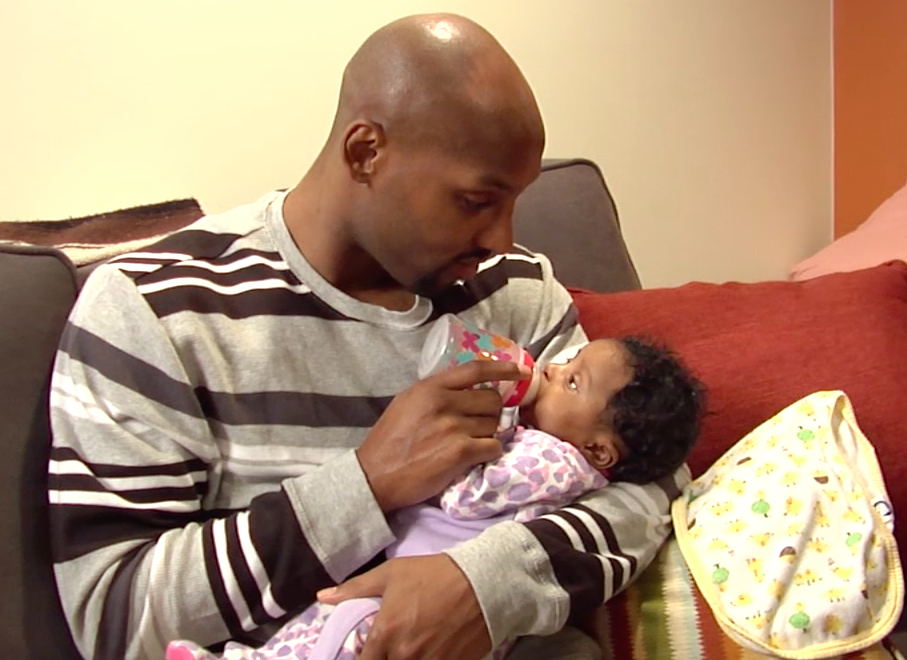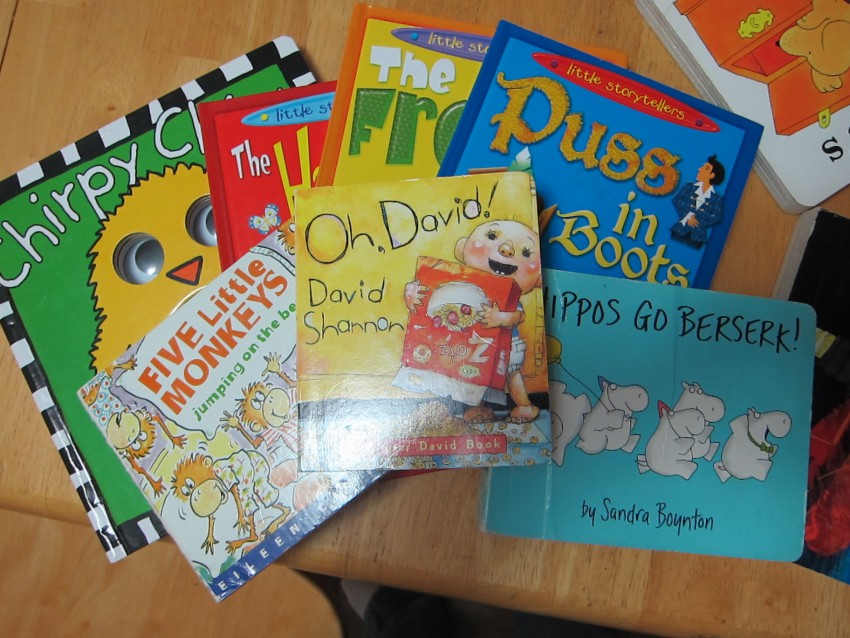Do you know how important the first 1,000 days are?
- October 26, 2016
- / Shannon Nickinson
- / studer-community-institute

Parents in the Thirty Million Words Initiative learn the importance of talking to their babies from birth. Photo credit: TMW.
Parenting is the toughest job you’ll ever love.
And based on new research, it is one most of us need help with.
That’s one of the findings of a survey done by the Zero to Three Foundation and the Bezos Family Foundation. In late summer and fall of 2015, Gen X and Millennial parents were surveyed about parenting — how they did it, what they knew and what they wished they’d known.
The results are published by the Zero To Three Foundation in the National Parent Survey. The study finds that across ethnic and economic backgrounds, parents want to get better at parenting. And it finds that many underestimate the critical importance of the first 1,000 days of a baby’s life.
That’s the time when the wiring of a baby’s brain is laid. If those wires aren’t strong, if that foundation is not firm, it impacts a child’s ability to learn for the rest of his or her life.
But the survey finds that parents underestimate how important that time is.
— 34 percent of parents say the most rapid period of brain development is between ages 3-5.
— 45 percent say the benefits of reading to children starts at age 2 or older. It starts at age six months.
— 34 percent of parents think talking to children begins to boost their language skills at age 1 or later; 63 percent say the benefits of talking start at three months. It begins at birth.
— 57 percent of parents say the quality of parental care has a long-term impact on a child’s development at three months of older. It starts at birth.

Last year, my colleague Reggie Dogan attended the First 1,000 Days Summit
in West Palm Beach. There, 700 practitioners, advocates and experts gathered to share their knowledge about how important those first days are.
He heard from experts in all aspects of child development, education, health and resources. He learned about the impact of adverse childhood experiences (ACEs) on a child that can hinder them long into adulthood.
He learned about the neuroscience that shows that parts of a young brain wither and essentially die if those connections aren’t built early on — and that language and interaction are what builds them.
He learned about programs in communities across Florida and the country that work with parents on their own terms in a non-judgmental way to help them talk more with their young children.
He learned about strategies like “serve and return” to boost positive, loving interaction between parent or caregiver and child.
It was all good stuff.
Now we’ve got to get it to more people.
It is exciting to think that the IMPACT Brain Bag, the project that SCI proposed to IMPACT 100 Pensacola Bay Area, can be one step in that mission.
The bags will include print and multimedia tools to help parents nurture their children’s language development by using the guidelines of the University of Chicago’s Thirty Million Words Initiative and other programs at work in the state.
Kindergarten readiness — often used as a guide for a child’s academic prospects — is deeply influenced by how much exposure to reading, language and words a child hears before age 3. It is an idea also related to the work that the Thirty Million Words Initiative does in early literacy.
The bags will contain a “baby book” with developmental milestones for parents to track, a picture book to read to their children, a lullaby CD, a letter from the superintendent of schools, small toys and other educational information.
The bags are just the first step of the project, which will include a curriculum and plans for home visits to families with newborns in the neighborhoods surrounding low-graded elementary schools.
It also includes a research provision with University of West Florida Professor Sam Mathews to track the impact that the home visits have on the children and families who receive them.
Parents like those in the National Parent Survey will be counting on us to start this journey. So will those sweet little bundles of joy in their care.
It will be just one step on a journey of 1,000 miles.
If you want to have a part in that journey, use this link to let us know.
We’ll need all the help we can get.

 CivicCon launches with a look at good growth in cities
CivicCon launches with a look at good growth in cities
 Building stronger brains one baby, one parent at a time
Building stronger brains one baby, one parent at a time
 SCI debuts commercial on Early Learning City
SCI debuts commercial on Early Learning City
 Entrecon: World class speakers and an opportunity to sharpen skills
Entrecon: World class speakers and an opportunity to sharpen skills
 PYP Quality of Life survey 2017
PYP Quality of Life survey 2017
 EntreCon Pensacola 2016: A look back
EntreCon Pensacola 2016: A look back
 Leadership tip: getting better employee takeaways
Leadership tip: getting better employee takeaways
 Leadership tip: be interested instead of interesting
Leadership tip: be interested instead of interesting
 Leadership tip: delivering difficult messages
Leadership tip: delivering difficult messages
 Brain Bags boost Arc, Early Childhood Court programs
Brain Bags boost Arc, Early Childhood Court programs